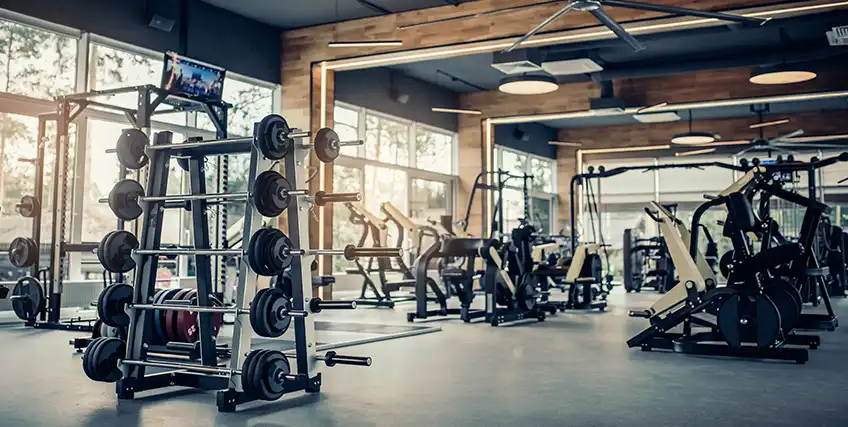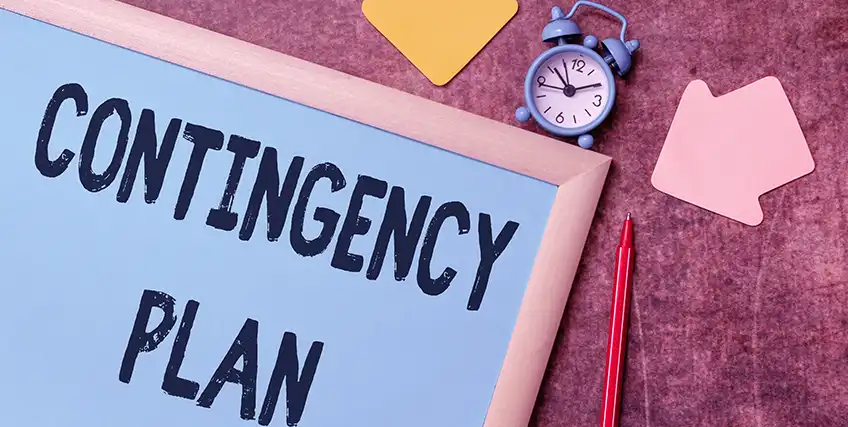How to Finance Equipment for Your Small Business
November 26, 2024 | Last Updated on: November 26, 2024

Disclaimer: Information in the equipment financing articles is provided for general information only, does not constitute financial advice, and does not necessarily describe Biz2Credit commercial financing products. In fact, information in the equipment financing articles often covers financial products that Biz2Credit does not currently offer.
How to Finance Equipment for Your Small Business
So, you’ve reached a point in your company’s life where your small business needs a new piece of equipment. Maybe you already have a similar piece of equipment, but it’s outdated or in constant need of repairs, or perhaps you are preparing for an expansion, and additional equipment is required to fuel your growth. Whatever the case may be, you’re ready to make a purchase.
But you may be wondering: what are my options if I don’t want to make a large upfront investment?
Here are five ways to finance equipment for your small business.
1. Business Term Loans
With a term loan, the borrower agrees to repay the lender on a predetermined schedule at a variable or fixed interest rate. These business term loans have relatively low interest rates and can be repaid over a period of up to 25 years – in certain cases, even longer – which can bring the monthly payment down to a reasonable number.
Flexibility is an easy-to-overlook advantage that comes with using term loans. Let’s say that you not only want to purchase equipment, but you also need financing for other investments in your business. If you take out a business term loan, you aren’t restricted in the ways that you can use the money. For the business owner who wants to, say, hire seasonal staff and invest in a marketing campaign with some of the proceeds of the term loan, this can be a godsend.
So, what’s the catch?
There is none… but you’re going to need a good credit score and a profitable history if you hope to get approval. On top of that, you may face a minimum loan requirement, typically of around $25,000. So if you just want to finance a $10,000 piece of equipment, you may have to find another option.
But, for small business owners with a long track record and a list of business needs, term loans are a solid option.
2. Business Equipment Loans
Term loans can be used for a variety of purposes, but business equipment loans are specifically designed for equipment financing.
And here’s another difference between term loans and business equipment loans: while term loans can be secured or unsecured, with a business equipment loan, lenders typically require the new equipment to be used as collateral for the loan.
Obviously, you’d prefer to not have to put down any collateral, but the ability to use the equipment itself as collateral prevents you from having to tie-up other assets to make equipment purchases.
On top of that, in return for agreeing to use the equipment as collateral, you may be able to a) qualify for business equipment loan with a lower personal credit score and b) get a lower interest rate. Think about it from the lender’s perspective: if you fail to make the loan payments, they can seize the equipment, which lowers their risk.
The term of a business equipment loan is typically equal to the expected useful life of the equipment. This can feel restrictive at first glance, but it also means you won’t be paying off a loan for a piece of equipment that has been on the scrap-heap for several years.
Overall, a business equipment loan may make sense for your business if you have:
- A startup without much of a track record
- Fluctuating cash flows
- No apprehension about putting up the equipment as collateral
3. Small Business Administration (SBA) Loans
The Small Business Administration (SBA) has been helping small business owners get financing since the 1950s through its loan programs. The SBA guarantees portions of loans, which makes it easier for “risky” small businesses to get business financing from traditional lenders like banks.
To qualify for an SBA loan, a small business owner must have invested time or money into the business and been unable to get a loan from financial institutions.
There are pros and cons that come with SBA loans.
Pros
- You can get a large loan. The 7(a) loans, for example, have a maximum loan amount of $5 million.
- The interest rates are affordable for small business owners; they are typically either fixed or indexed off the prime interest rate set by the Federal Reserve.
- The SBA has resources that are helpful throughout the loan application process.
Cons
- With an SBA loan, the approval process can drag on for months, where other types of financing can be approved much faster.
- As stated earlier, SBA loans are available to those who aren’t qualifying for loans at financial institutions. But that doesn’t mean that they’re easy to secure; SBA loans are highly competitive and you may need a FICO score of 720 or higher to qualify.
- You may need to make a down payment of 10-20% of the purchase price, whereas, with business equipment loans, you can get up to 100% financing.
Unlike term loans and business equipment loans, SBA loans only make sense in select circumstances. But if you have exhausted all of your other small business loan options and you need an expensive piece of equipment, you might want to go down this road.
4. Business Credit Cards
You obviously don’t want to get buried under a mountain of credit card debt, paying an annual percentage rate (APR) in the teens. So, if you are thinking about buying a new piece of equipment with a business credit card, be careful.
You should consider using a business credit card if you just need to cover short-term working capital needs and you can find the right credit card.
Imagine the following situation: your creditworthiness enables you to get a credit card with a 0% APR introductory period of one year. You are nearly certain that you will get an influx of cash flows sufficient to pay down the credit card debt over the 3-6 months following the purchase. In that case, it would be a savvy decision to purchase the small business equipment with the credit card.
If, on the other hand, you are paying a 15% APR from Day 1, and you don’t know whether you’ll be able to pay down the debt over the next few months, you may want to look at other options.
Also, business credit cards often have relatively low limits. If you want to purchase a piece of equipment for, say, $500,000, you’re going to have an awfully hard time finding a credit card with that high of a limit.
As with anything, but particularly with business credit cards, it’s important to read the fine print.
5. Business Line of Credit
If you’re unsure how much equipment you need for your small business, you may want to consider applying for a business line of credit. With a business line of credit, you take out a business loan for whatever you need (assuming it’s under the limit), whenever you need it. The line of credit is unsecured, so you don’t have to provide real estate or equipment as collateral. You typically don’t need a high credit score to get a business line of credit, making it an attractive option for startups.
Sounds great, but as you may have realized, there’s no such thing as a free lunch in the lending space.
The “catch” with a business line of credit is that there is a variable, instead of a fixed APR. If you need to buy your new piece of equipment in, say, two years, your interest rate could be higher than you expected. While interest rates have been low for several years, inflationary pressures are mounting.
You Can Lease Your Business Equipment
If none of these heavy equipment financing options for business are right for you, you may want to lease your business equipment. There are specialized leasing companies that only lease certain types of equipment; so, if you encounter a problem with your leased equipment, you can deal with a company that knows how to fix it.
By leasing your equipment, you don’t get out of the credit history checks that come with financing equipment through traditional banks, alternative lenders, or equipment financing companies. But the requirements may be less stringent.
There are a few clear advantages that come with equipment leasing:
- The leasing company is responsible for handling repairs caused by normal wear and tear.
- You typically don’t have to make a down payment, taking away the need to tie up funds.
- If you’re buying equipment that quickly becomes outdated, there may not be much of a benefit in ownership, making leasing a more attractive option.
- At the end of the lease term, you may be able to purchase the equipment.
The leasing vs. buying equipment decision shares similarities to renting vs. buying a house. By leasing, you minimize hassles and remove the need for an upfront investment. By buying, you build equity, but take on more responsibility.
How Do You Determine the Best Business Equipment Financing Option?
It’s easy to be overwhelmed by all of the business equipment financing options. The best option for you depends on your circumstances, but often times, there aren’t clear-cut answers.
For example, you want to buy 100 new computers for your business. You have a high credit score and long track record. But you also might need extra funds to hire seasonal staff in a few months – and you would prefer not to take out another loan. So, should you go with a term loan or business equipment loan? Hard to say.
If, on the other hand, you knew that you were going to need the seasonal staff, the term loan would probably be the way to go.
So, what should you do if you aren’t sure which equipment financing option is best?
You should probably talk to an expert. Reach out to potential lenders, their funding specialists are always available to help find the right solution for your business.
Unsure if a business equipment loan is exactly what your business needs right now? Check out this helpful guide from Biz2Credit that explains the many different types of loans that could be what your brick-and-mortar business needs.
FAQs about Business Equipment Financing
What are the different payment options available for equipment financing loans?
You will typically have to make a downpayment, as well as monthly payments (or more frequent) for the term of the loan.
What is depreciation and how does it affect my equipment?
Depreciation is an accounting practice that factors wear and tear into the value of your equipment. Through regular use over time, equipment decreases in value, so to enable fair valuation for tax purposes and for financing purposes, the decrease in value is taken into account.
What documents do I need to apply for business equipment financing?
When applying for financing, you’ll want to prepare your tax returns, bank statements, business plan, equipment quote, financial statements, and your credit score.
Can I use equipment financing if I don’t have a business?
No, equipment financing is reserved for businesses. When applying for financing, you will be required to show that you are registered as a business.
Are equipment loans easy to get?
Because the equipment is held as collateral for the loan, business equipment loans are typically easier to get when compared to other types of financing. You’ll still need to show that you qualify and that you’ll be able to make payments on the loan, but it shouldn’t be as difficult as some other financing options.
Frequent searches leading to this page
equipment loans, equipment leasing, business loans, business equipment financing, business equipment loans, equipment funding




